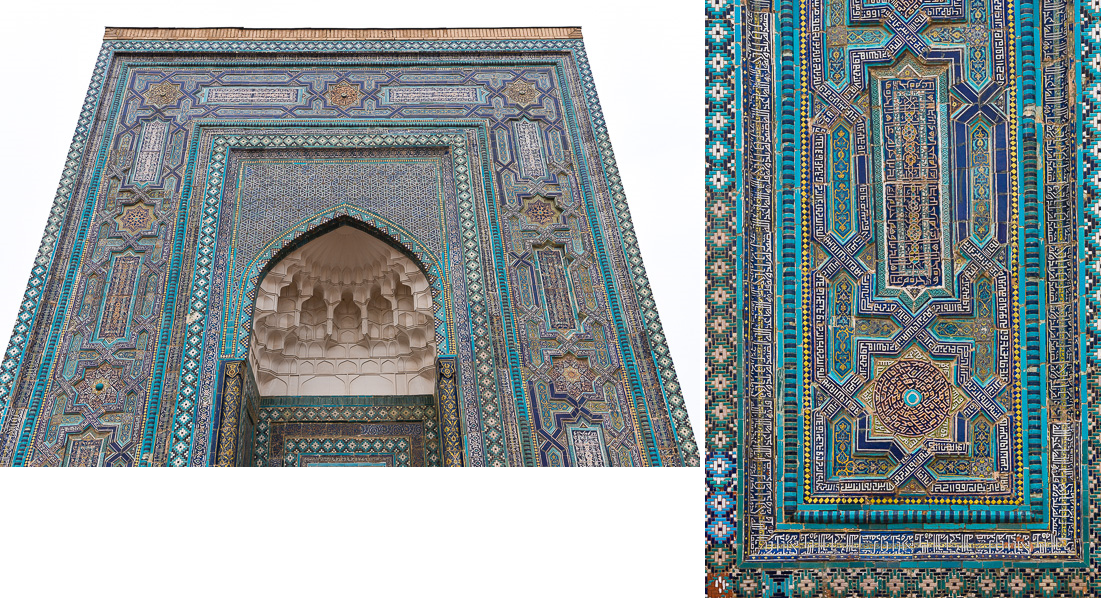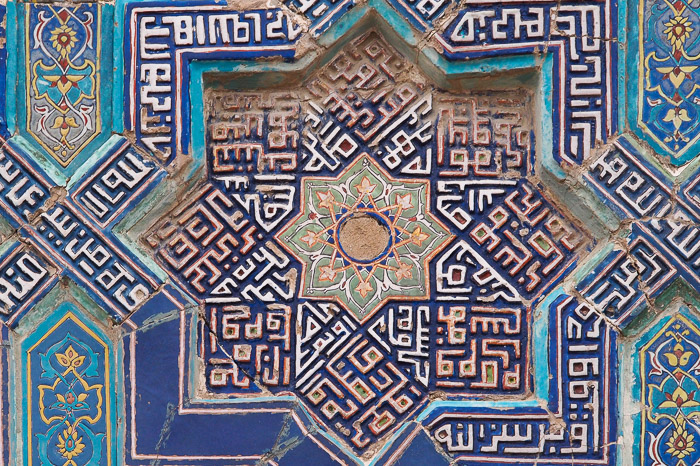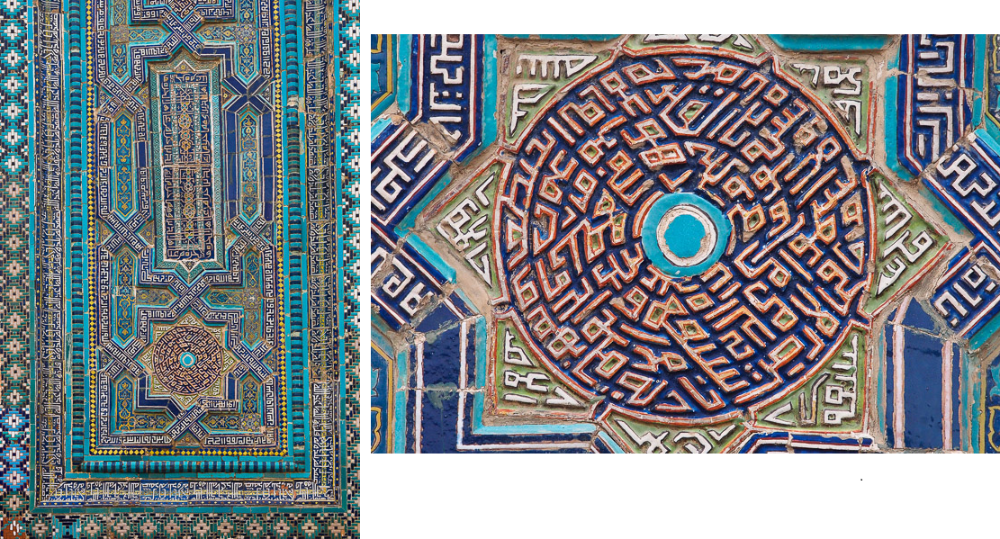12 Alim Nasafi mausoleum (2)
The Ali Nasafi mausoleum is richly decorated, as well outside as inside, but the numerous inscriptions hardly present information of who ordered the construction and for whom.
As these verses are drawn directly from the Quran, they do not provide any useful information regarding the tomb's occupant, other than that he/she was a Muslim. The only calligraphy that suggests more detail are the names of the twelve imams inscribed within several of the 8-sided star motifs on the front of the pishtaq. It may be an indication that the occupant had Shi'ite affiliations or was sympathetic to Shi'ite beliefs. Beyond that, nothing written on the tomb brings its occupant into closer focus. It remains possible that such identifying information once existed on the tomb but was located in one or more areas that did not survive the passage of time. The present "complete" appearance of the tomb is deceptive, as roughly 40% of the facade's tile work are recent restorations of excellent quality.

12 imams
In an 8-pointed star you can read the names of the 12 imams, the spiritual and politc successors of the prophet Muhammad. 8 of the names are written in the squares between the big and the little star. The other 4 names are divided and written in the 4 kites, filling the whole space between the two stars.

Koranverzen
The iconography of the tomb's richly decorated pishtaq and interior surfaces provides a wealth of calligraphic samples in Arabic, mostly written in square Kufic script. These mostly consist of verses from the Quran such as Sura 112 "The Unity", Sura 114 "The Men", and the entirety of verse 255 from Sura 2:
Allah - there is no deity except Him, the Ever-Living, the Sustainer of [all] existence. Neither drowsiness overtakes Him nor sleep. To Him belongs whatever is in the heavens and whatever is on the earth. Who is it that can intercede with Him except by His permission? He knows what is [presently] before them and what will be after them, and they encompass not a thing of His knowledge except for what He wills. His Kursi [throne] extends over the heavens and the earth, and their preservation tires Him not. And He is the Most High, the Most Great.
